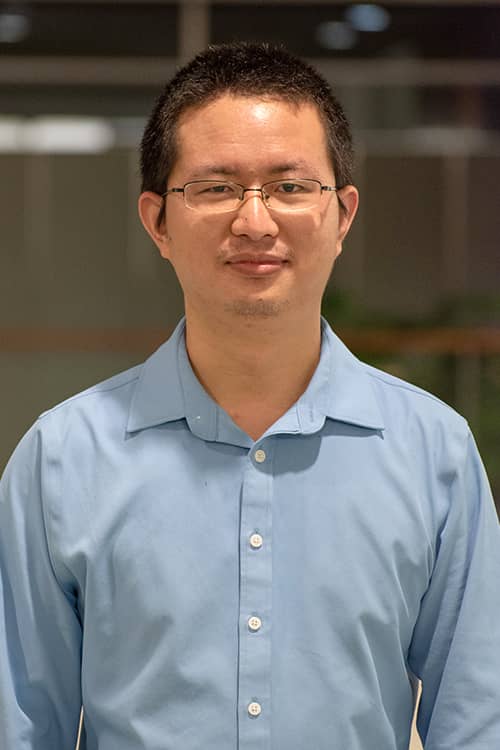
Jirong Yi, Ph.D. student, Electrical and Computer Engineering
Advances rapid COVID-19 testing
• Hometown: Changning, Hengyang, Hunan province, People’s Republic of China
• Faculty mentor/advisor: Weiyu Xu (Associate Professor) and Xiaodong Wu (Professor)
• What is your degree program and expected graduate date? PhD in Electrical and Computer Engineering; Expected to graduate in May 2021
• Please describe your research: Our research in compressed sensing enables us to develop novel COVID-19 testing technology with high throughput. The new technology can be applied for rapid, large-scale virus testing to rapidly respond to outbreaks. Our invention has received interest from academia and media, including research groups from Harvard University, and IEEE Spectrum. We have also secured research grants from National Science Foundation. We are currently running clinic laboratory tests, and the preliminary practical results show that our method can achieve superior performance.
• In simple terms, why does this research matter? Our compressed sensing approach can: (1) achieve the goal of identifying infected individuals with much fewer tests, which saves costs; and (2) provide more compelling and trustworthy results due to the inclusion of an estimate of the virus amount.
• How soon after starting at the University of Iowa were you able to participate in research? Three months.
• How has being involved in research made you more successful at the University of Iowa? Doing research at University of Iowa gives me the opportunity to push forward the boundary of human knowledge and allows me to make a potential difference for our society so that we can have a better world. It’s also a unique opportunity for me to challenge the past and what had been impossible, and I get a strong sense of achievement. Last but not least, I’m proud of being in the UI community, and contribute to our society. These wonderful experiences will motivate me to keep moving forward and make greater contributions.
• What are your career goals and/or plans after graduation? I’ll pursue a career in R&D after graduation, and continue my research in machine learning, mathematical optimization, and compressed sensing. Application of these new technologies in solving challenging practical problems is also what I want to contribute to in the future.
• Does your research have connections to or implications for COVID-19? Please explain. Yes. Our research in compressed sensing enables us to develop novel COVID-19 testing technology with high throughput, and it achieves far superior performance than the traditional approaches which are based on the group testing techniques.
Banner location: online—
